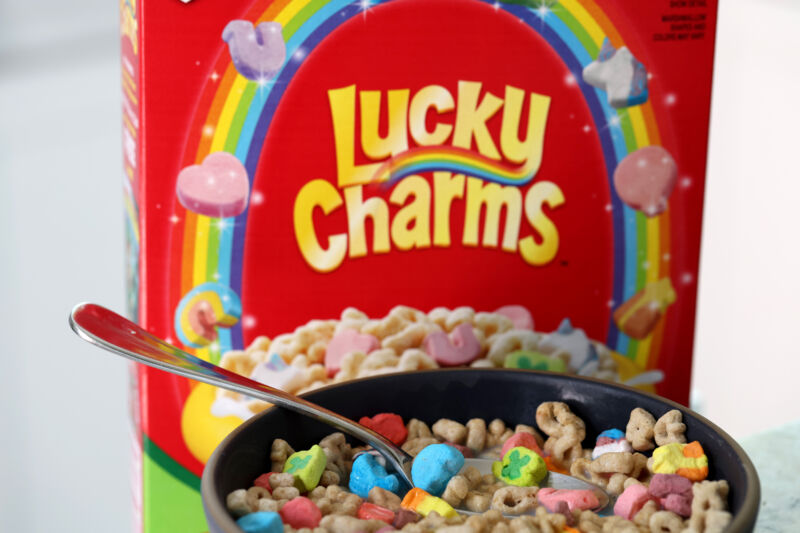
The end of the rainbow may not have a pot of gold—but a pot of something entirely different.
Thousands of people have reported stomach pains, nausea, vomiting, and diarrhea after eating Lucky Charms, the “magically delicious” sugar-coated cereal fronted by a cartoon leprechaun that feebly tries to prevent hungry children from getting his colorful charm-shaped marshmallows. The illnesses have left many wondering if the latest lineup of charms includes hearts, stars, horseshoes, clovers, and tasty infectious bacteria.
The website iwaspoisoned.com, which collects consumer reports of food-borne illnesses, has received more than 3,000 complaints about the cereal from all over the US, most of which are from the past few weeks. Lucky Charms has now received more illness reports than any other individual product in the site’s 10-year history, according to Patrick Quade, founder of the site, who spoke with The Wall Street Journal.
In statements to the press, the Food and Drug Administration said it has received more than 100 reports of illnesses through its own reporting system and has opened an investigation. “The FDA takes seriously any reports of possible adulteration of a food that may also cause illnesses or injury,” the regulator said.
General Mills, which makes Lucky Charms, told reporters that it has heard the reports but has not found any evidence that its cereal is causing illnesses. “Food safety is our top priority,” a spokesperson told The New York Times. “We encourage consumers to please share any concerns directly with General Mills to ensure they can be appropriately addressed.”
Meanwhile, the official Lucky Charms Twitter account has been swamped with tummy troubles. The account’s replies are a long string of messages starting with “We are very sorry to hear about your experience.”
The account echoed that of General Mills’ comments, tweeting: “Food safety is our top priority. We’re aware of concerns via a third-party website and take these reports seriously. We’ve investigated and found no evidence these complaints are attributed to our products.”
This isn’t the first time children’s cereal has had people of all ages rushing to the bathroom—or, in some cases, the hospital. In 2018, Kellogg’s Honey Smacks sweetened puffed-wheat cereal sickened 135 people in 36 states, sending 34 to the hospital. An FDA investigation determined that a Wisconsin factory producing the cereal was rife with Salmonella, which was detected in more than 100 samples taken from the production lines, cereal-coating rooms, and other areas of the plant. The FDA noted that Salmonella can cause fever, diarrhea, nausea, vomiting, and abdominal pain in healthy people while causing more severe illness in children, the elderly, and people with compromised immune systems.
Also in 2018, PepsiCo recalled a small batch of Cap’n Crunch’s Peanut Butter Crunch for potential Salmonella contamination, though there were no reports of linked illnesses.
https://arstechnica.com/?p=1849171

